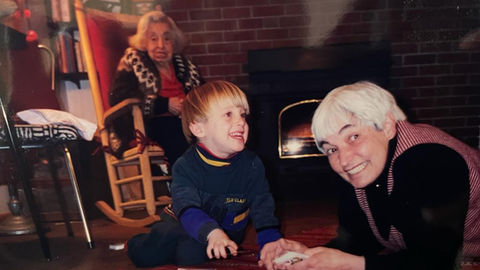in PICTURES
Judith, Peter, and their many friends led a rich intellectual life; and at any given time were likely to be found in lively discussions covering a broad array of topics and perspectives - from science to politics to art; and to, of course, computers. Who was thinking about access to machine readable data in the 1960s?
Judith respected and adhered to the concept of personal responsibility. At home, at work, within the extended family and larger community, She took each of her roles seriously. She was generous and could always be counted on to listen; and be honest - sometimes too honest. She was ahead of her time, and always made time for others.
Cousin Monica: "I’d go to her house in Princeton, with its bathtub on the front porch, NPR or classical music playing, British tv shows adding levity, and get immersed into the sunken living room, with its piano and walls of huge art books from museum exhibitions. Judy and Peter’s home was a safespace for me,.
"She had giant wire earrings and manicured nails; and was also very casual and intimate. When I had my internship in NY in my late teens, I’d take the train to eat with them many weekends as they were as, or more, in-the-know of arts and culture than anyone younger at a bar in the Village. So advanced when it came to computers, they continuously outgamed me and Harlo! And as they retired and moved to DC, they taught us
how to age gracefully, choosing a place with friends and transportation to museums over the way I'd seen so many other people’s grandparents seek quiet. Quiet she wasn’t, and once someone called a person who worked in an office a girl, a common term at the time. Judy paused the conversation to comment that the officeworker is 'over 18, and if so, then we call her a woman!' Imagine what it was like for me to hear that as I’m growing up and coming into myself."
Judith spent her last three years close to family in Herzliya, Israel.
























